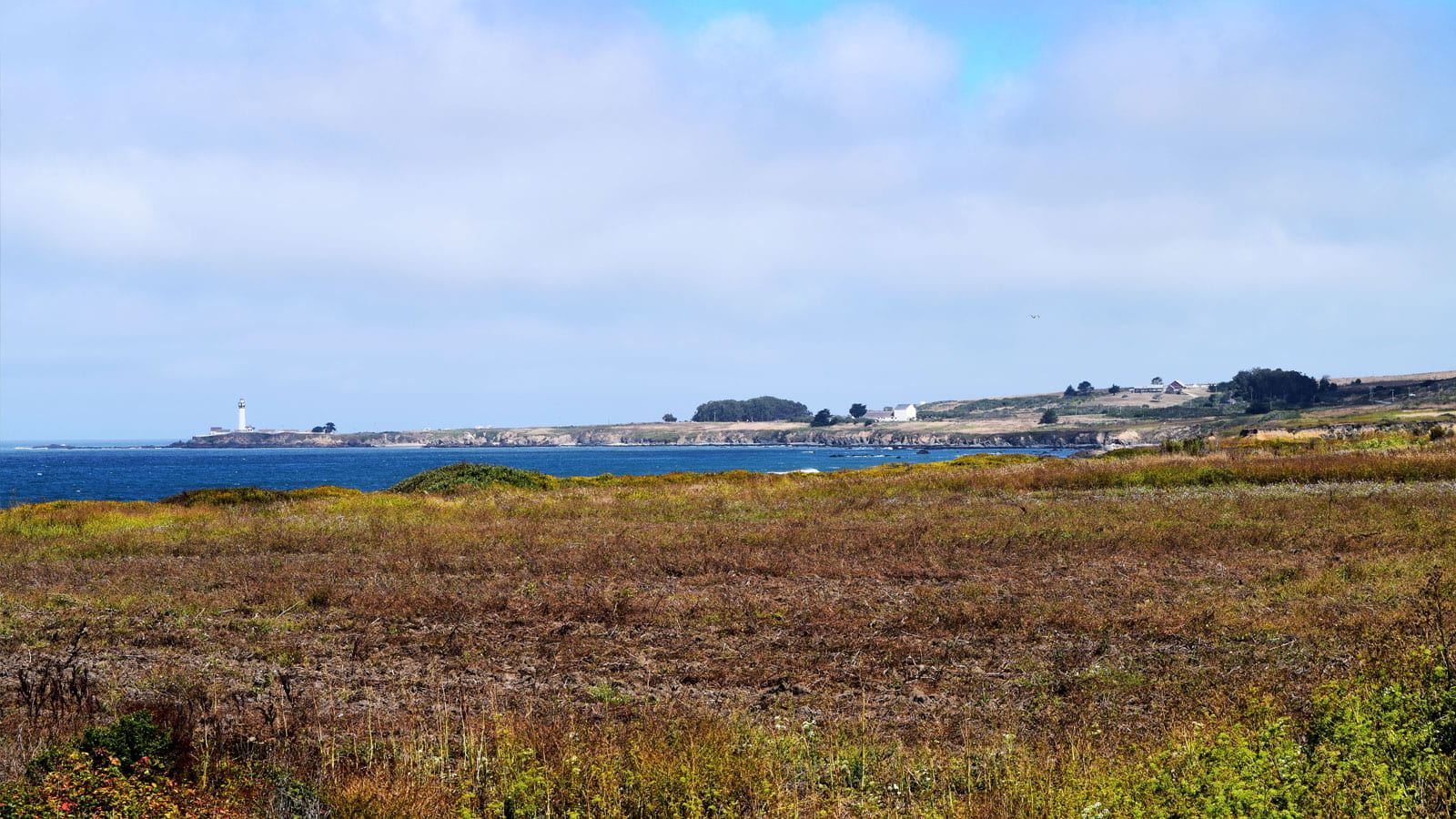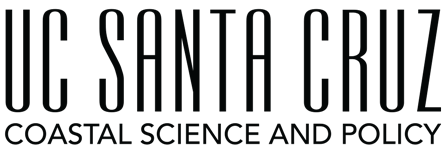ABOUT
Educating future leaders in the science and policy of coastal sustainability
The Coastal Science and Policy Program at UC Santa Cruz is tailored for rising leaders to develop interdisciplinary solutions to global challenges facing coastal communities and ecosystems. The program prepares students to identify, innovate, and implement scalable and socially just solutions to climate, biodiversity, and other sustainability challenges in coastal zones around the world.
The program offers two programs of study, a masters of science and a Ph.D. designated emphasis for UCSC Ph.D. students. Coursework emphasizes interdisciplinary scholarship, project-based study, and developing practical solutions to real-world problems.
The program aims to develop competency in:
- Identifying Needs, Solutions, and Priorities: Recognizing growing needs and problems within the context of coastal sustainability, identifying strategic, high impact solutions to address these needs, and prioritizing these solutions.
- Systems Thinking and Interdisciplinary Scope: Understanding connections among diverse components of physical, ecological, and social systems, and integrating them to address diverse issues.
- Process Integrity: Addressing how to protect and preserve the integrity of physical, ecological, evolutionary, social, and cultural processes.
- Practical Skills and Real World Approaches: Gaining practical skills, including communication, quantitative and qualitative analysis, problem solving, interpersonal relations, critical thinking, teamwork, mediation and consensus building, conflict resolution, leadership, fund-raising and project management. Applying these practical skills with theoretical concepts to solve real coastal issues through engagement of business, governmental and non-governmental partners and practitioners.
Our Progress by the Numbers
The Coastal Science and Policy Program is making great progress on meeting our goals:
22% Admit rate (~70 applicants per year)
Admitted Student Body:
- 23 Countries Represented
- 51% International 49% Domestic
- Diverse, Inclusive Student Body: 73% of all students are persons of color and 30.4% of US students are Black, Indigenous, or Persons of Color
- All of our students have 2-10 years of sustainability experience
Funding/Fundraising
- 39% fully funded for two years-tuition, fees, living stipend by the program
- 57% partially funded by the program
- 4% self funded
- Over $1.2M in student self-generated funding
- Over $3.6M in program raised funding
*numbers updated Winter 2025
Diversity, Equity & Inclusivity Values
Coasts, from land to the sea, are ground zero for sustainability challenges. Climate change is multiplying social and environmental vulnerabilities of coastal communities. Approximately 40% of Americans living in coastal counties fall into an elevated coastal hazard risk category. These include children, the elderly, households where English isn’t the primary language, and those in poverty. Communities of color and other vulnerable populations are on the front lines of these challenges and bring unique perspectives and talents to develop effective, just, and scalable solutions.
The need for inspiring leaders who innovate, implement, and champion effective solutions to today’s biggest environmental and social challenges has never been greater. The Coastal Science and Policy program believes that we need leaders who reflect the full diversity of our communities in order to find solutions that are effective, socially just, and equitable. The Coastal Science and Policy program is making a concerted effort to provide inclusive training to our students who, as a result of this training, graduate well-equipped to take on leadership positions and contribute perspectives from the full range of society’s diversity (including, but not limited to, ethnic, racial, socioeconomic, and gender).
CSP seeks to attract students, faculty and staff who reflect varied perspectives of diverse people, whether in terms of their disciplinary expertise, tradition, heritage, race, ethnicity, sex, religion, sexual orientation, gender identity, age, socioeconomic status, disability status, or experience. We believe in the inherent value of diversity and in its power to help us creatively and effectively pursue our mission.
For questions about the program, contact CSP staff at csp@ucsc.edu.
Location
The Coastal Science and Policy Program would like to acknowledge that the land on which we gather for our courses and programs is the traditional and unceded territory of the Uypi Tribe of the Awaswas Nation. Today these lands are represented by the Amah Mutsun Tribal Band who are the descendants of the Awaswas and Mutsun Nations whose ancestors were taken to Mission Santa Cruz and Mission San Juan Bautista during Spanish colonization of the Central Coast. Today, the Amah Mutsun are working hard to fulfill their obligation to the Creator to care for and steward Mother Earth and all living things through relearning efforts and the Amah Mutsun Land Trust (The above acknowledgement has been modified from a statement developed by the tribal chairperson of the Amah Mutsun Tribal Band, in collaboration with Rick Flores).
Our location on Monterey Bay and UCSC’s Coastal Research Campus (five kilometers from UCSC’s main campus), allows the CSP graduate program to conduct groundbreaking collaborative research and offers students unique educational opportunities. CSP students and researchers have ready access to the resources of a major research university, as well as state and federal agencies and non-governmental organizations that are co-located on the Coastal Research Campus. These institutional partners reflect the diversity of practitioners in the greater Monterey, Salinas and Silicon Valleys, and San Francisco Bay areas. As members of the CSP program, students can take advantage of local opportunities or apply their interests to coastal regions (from watersheds to the open ocean) elsewhere in the world.
The rich diversity of coastal land, watersheds, and marine environments support forestry, agriculture and fisheries, rural and urban communities, industries and governments that create and sustain the unique qualities of coastal zones and their peoples around the world.

